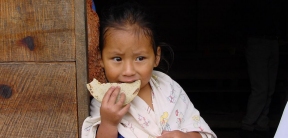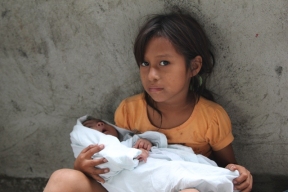
As a country where 46.5 percent of 5-year-old children are victims of malnutrition, Guatemala faces the challenge of eliminating one of the great threats to its future, a fight that will require a powerful ally – the private sector. If the government and the private sector “work together, they can completely change the malnutrition scenario” in Guatemala, UNICEF Goodwill Ambassador Agnes Chan told EFE in a recent visit to the country. In the country’s indigenous areas, 65 to 70 percent of children suffer from malnutrition, with the proportion spiking in some places like Huehuetenango province, where it rises to 90 percent. In fact, almost 60 percent of malnutrition in Guatemala – 600,000 children – are concentrated in the four provinces of Alta Verapaz, Huehuetenango, Quiche and Chiquimula.

“This is a country rich in resources,” Chan said. That being the case, if the private sector and the government work together, while making use of the experience of organizations like UNICEF, “maybe in four to 10 years (malnutrition) could be reduced by 25 percent,” Chan said with the confidence of someone who believes that dreams can be made to come true. But what must really be overcome is poverty, “the daily struggle to put food on the table” that leads many parents to take their kids out of school and put them to work.” Between malnutrition and child labor, Chan said, there is a common cause: “poverty.”








